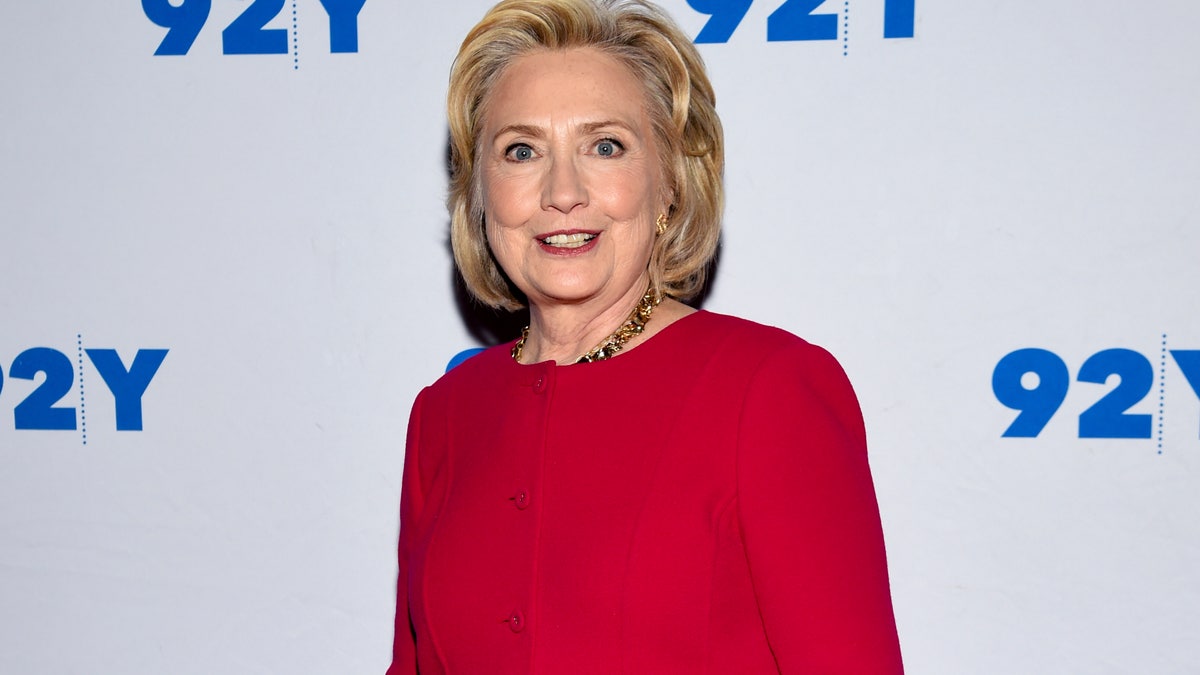
Former first lady of the United States Hillary Rodham Clinton poses backstage before her conversation with Kara Swisher at the 92nd Street Y on Friday, Oct. 26, 2018, in New York. (Photo by Evan Agostini/Invision/AP)
As the old saying goes “Once is a mistake. Twice is a pattern. Three times is a habit.” There seems to be a habit of demonizing women in politics as they become more powerful. What starts as a whisper campaign becomes a hurricane of criticism that is designed to defeat them by demonizing them.
It’s simple, if voters don’t like you then it’s nearly impossible to win an election. Exploiting tired tropes about women combined with the toxic environment of politics today, fueled by millions of dollars in paid ads and televised rallies makes certain women are loathed by a segment of voters. More often than not it is personal not policy. But, make no mistake, it is designed to make them unacceptable. That‘s not a coincidence. And once you demonize one woman it becomes more acceptable to do the same to the next one.
The first example is Hillary Clinton. For over 40 years she has been the target of some of the harshest criticism of anyone in politics. As First Lady of the United States when she led health care reform the criticism was relentless. When she became a candidate in her own right for the Senate and then president the criticism only increased. In 2015 as Clinton was running for president, Congressman Kevin McCarthy, soon to be the Republican House Minority Leader, said “Everybody thought Hillary Clinton was unbeatable, right? But we put together a Benghazi special committee, a select committee. What are her numbers today? Her numbers are dropping. Why? Because she's un-trustable. But no one would have known any of that had happened had we not fought and made that happen." Clinton finished the 2016 election with an unfavorability rating of 52 percent.
However, the campaign to demonize Clinton reached its zenith with Donald Trump. To this day at Trump rallies his supporters still chant “Lock her up” for purported crimes, the claims of which certainly hurt her with voters in the 2016 election. Yet, ironically it was Trump who was under investigation throughout the 2016 election and could be on the verge of facing criminal charges as those around him plead guilty to crimes.
Next is Nancy Pelosi. The first woman Speaker in history, poised to claim that post again, has faced withering criticism as well. A favorite of Republicans, they use Pelosi to raise money and oppose Democrats, spending hundreds of millions of dollars in ads about her. In the last six weeks of the 2018 election alone over 61,000 ads featuring Pelosi were run by Republicans. Pelosi’s unfavorability rating is 48 percent in the latest Fox News poll.
There will be more women subjected to this campaign to demean and discredit them unless those who use these tactics pay a price for it.
In a recent White House meeting with Trump, he felt the need to try to diminish Pelosi by saying she was having a hard time getting votes to be Speaker. Pelosi not only chastised him for the characterization, but she also schooled him on rounding up votes for the budget, then wrapped up the race for Speaker in the wake of her performance.
Democrats aren’t innocent either in this case. Criticism of Pelosi’s age is used to suggest she’s past her prime. Yet for older men age is seen as experience. Congressmen Seth Moulton, D-Mass., and Tim Ryan, D-Ohio, opposed her bid for Speaker for seemingly no other reason than her age. Their opposition was couched in the veneer of “new leadership.” Yet, they were unwilling to run against her themselves and unable to find anyone to do it.
The latest target is Elizabeth Warren. As she prepares to launch a campaign for president many of the same attacks lodged against Clinton and Pelosi are now used against Warren. Trump’s Chief of Staff John Kelly called her an “impolite, arrogant woman.” Senate Majority Leader Mitch McConnell famously tried to silence her on the Senate floor while she read a letter from the late Coretta Scott King critical of Attorney General Jeff Sessions. McConnell admonished Warren because she refused to stop speaking, then he banished her from the floor as a result, saying “and yet she persisted.” Warren finished her speech in the hallway on Facebook for the world to see and, yes, “persisted.”
Lately, it is the criticism of Warren’s heritage using a slur demeaning to Native Americans and women that started in her first Senate race. Now used by Trump and his supporters, it is the worst example of the effort to demonize Warren and make her unacceptable to voters. It is too early to measure her national unfavorability rating. But, make no mistake about it, the campaign to demonize Warren is well underway.
The fact is that Clinton, Pelosi, and Warren aren’t the only women subjected to this treatment. But they should be the last. There will be more women subjected to this campaign to demean and discredit them unless those who use these tactics pay a price for it. Despite the record number of women elected to Congress, most of whom are Democrats, and the historic gender gap of women voting for Democrats, that alone may not be enough to stop this approach. The strategy to demonize women, and those who practice it, has to become unacceptable in American politics.
When that day comes, then women can wage campaigns on the same terms as men and that will make our elections, our democracy, and our country better for it.








































